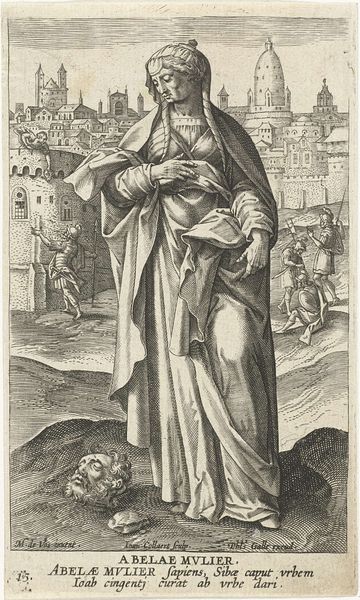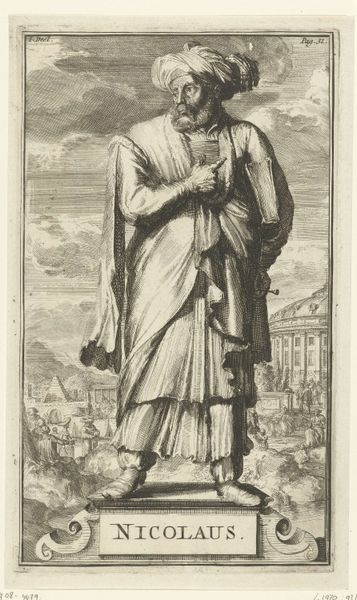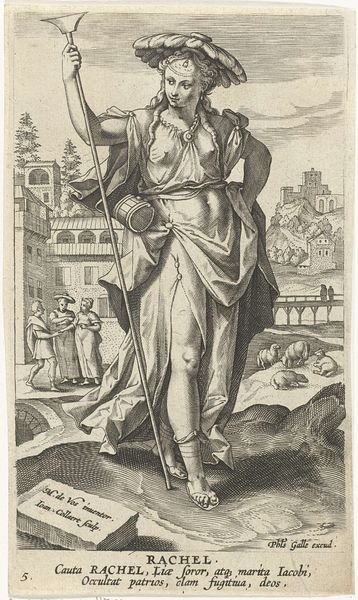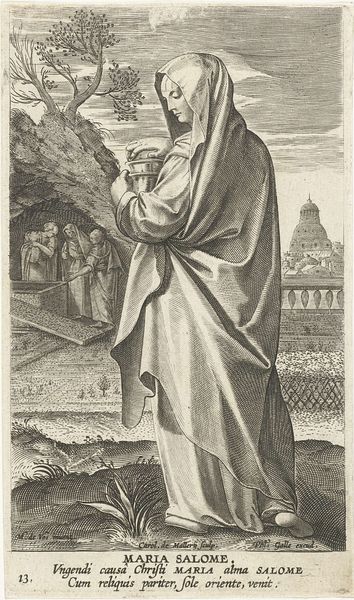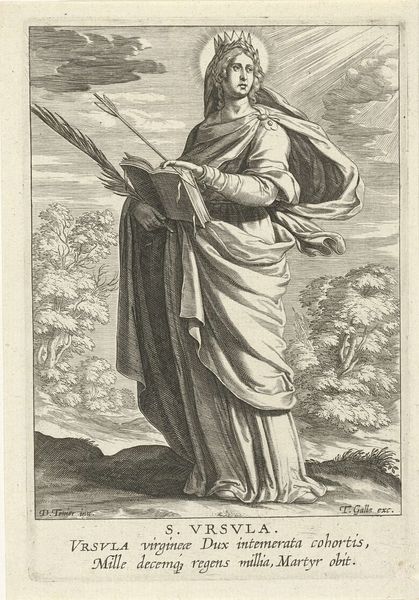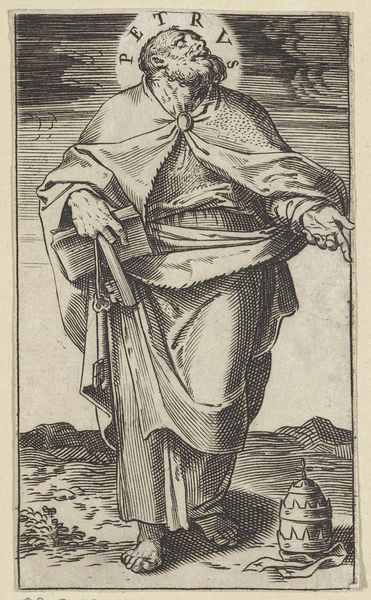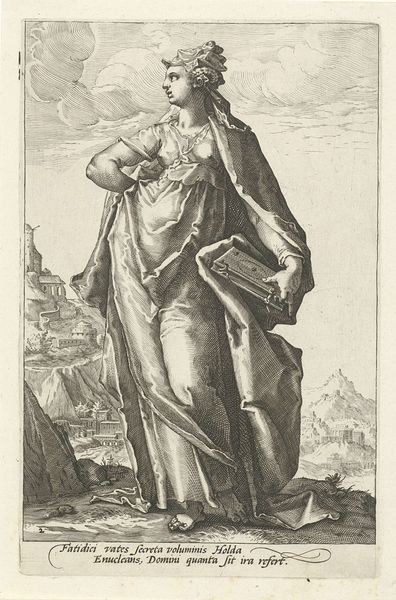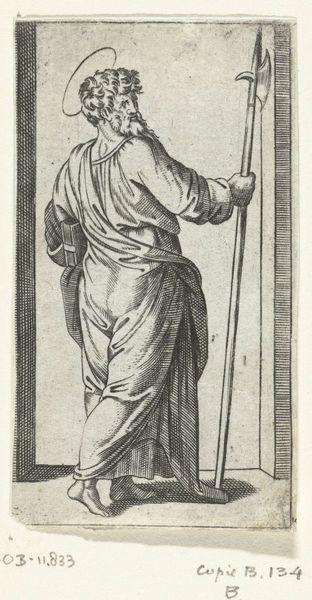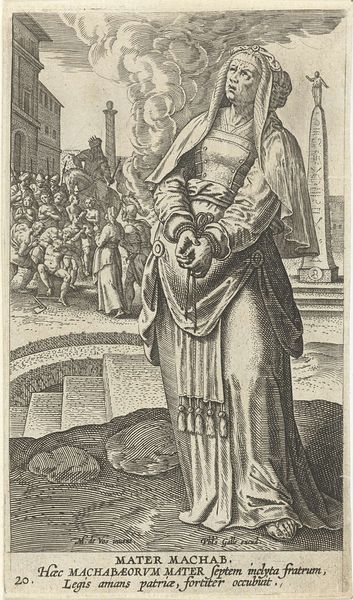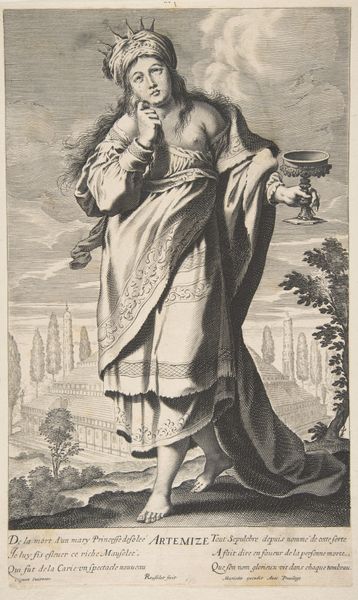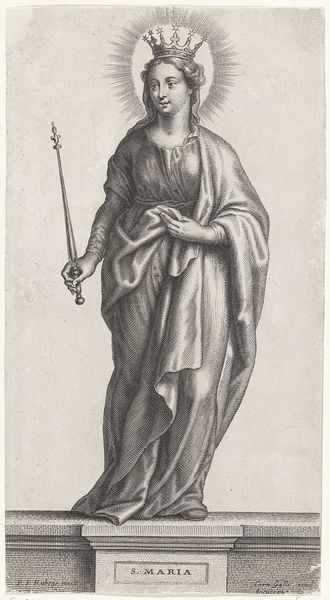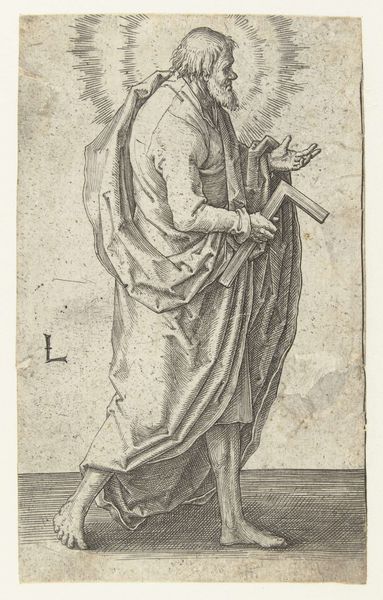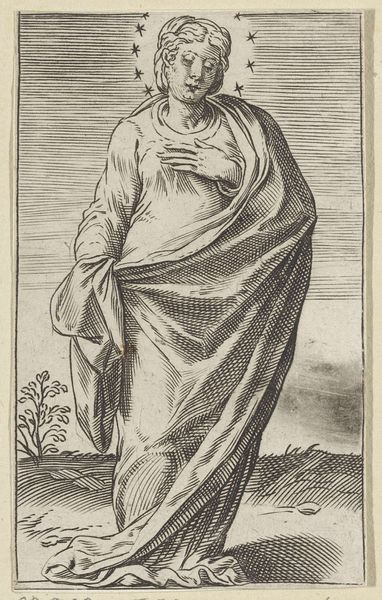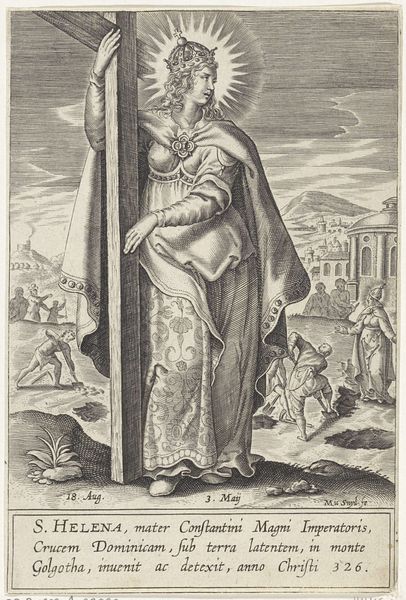
print, engraving
#
portrait
#
narrative-art
# print
#
old engraving style
#
caricature
#
figuration
#
portrait drawing
#
northern-renaissance
#
engraving
Dimensions: height 153 mm, width 88 mm
Copyright: Rijks Museum: Open Domain
Karel van Mallery’s engraving depicts the biblical story of the woman healed by touching Jesus’s garment. It was printed in Antwerp at a time when the city was a center for disseminating religious imagery, particularly during the Counter-Reformation. Note how the image is constructed through cultural references and historical associations. Mallery presents the woman as both frail and determined, her hand reaching out in faith, and we should consider how this image creates meaning through visual codes. In the 16th and 17th centuries, the Catholic Church emphasized the importance of relics and the power of physical contact with holy objects. The print may have served as a form of religious instruction. Looking at this artwork, we can question the public role of art and the politics of imagery in early modern Europe. To understand it better, we might consult religious texts, theological treatises, and histories of the Counter-Reformation, bearing in mind that the meaning of art depends on its social and institutional context.
Comments
No comments
Be the first to comment and join the conversation on the ultimate creative platform.
